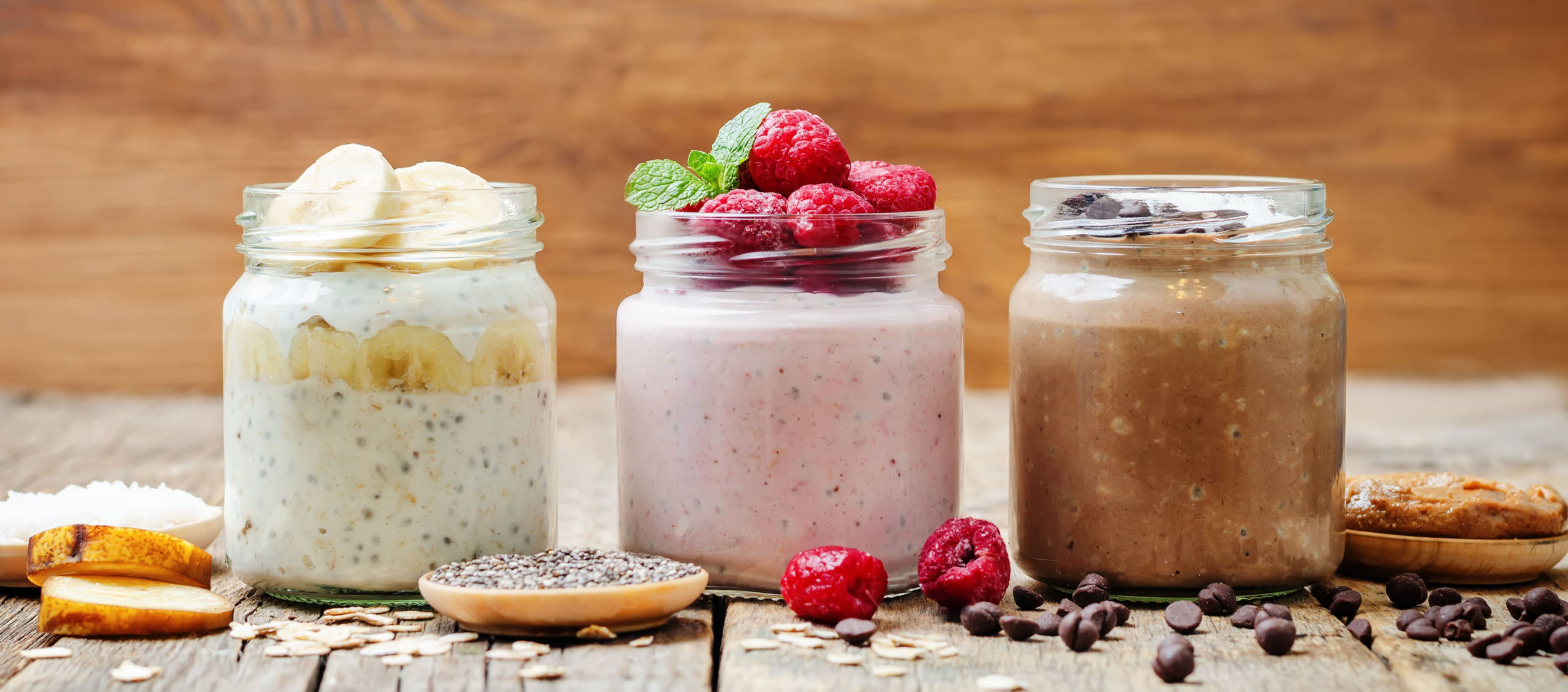

Overnight Oats
Pack a heart healthy breakfast that is loaded with fiber and will help keep you satisfied until lunch time. Overnight oats are perfect to make ahead for the week. They can be eaten cold right out of the refrigerator or you can warm them up for a quick and satisfying grab-and-go breakfast.
Base Ingredients:
- ½ cup low-fat or nonfat milk (or dairy alternative)
- ½ cup Old fashioned rolled oats
- ½ cup plain, low-fat or nonfat Greek or regular yogurt
- 1 tablespoon Chia seeds
Mix In Options:
- ½ cup fresh, canned or frozen fruit (blueberries, banana, pomegranate, cherries, apple, pineapple) or ¼ cup dried fruit (raisins, shredded coconut)
- ¼ cup nuts or seeds (walnuts, pecans, slivered almonds, sunflower seeds, pumpkin seeds) or 1 tablespoon nut butter (peanut butter, almond butter, sun butter)
- ⅛ -½ teaspoon spices (cinnamon, nutmeg, ginger)
Directions: Add all ingredients into a jar or container and stir well. Refrigerate overnight or for at least 5 hours. When ready to eat, milk may be added to reach desired consistency. Base ingredients without additional toppings may be stored in the refrigerator for up to 4 days.
Tips:
- You can make this dairy free by using plant-based dairy alternatives.
- People with celiac disease or gluten sensitivity should use oats that are labeled “gluten free”, as oats are often cross contaminated with wheat and barley.
- Be mindful of added sugars. If using canned fruit, choose one that is packed in 100% fruit juice. This also goes for dried fruits and choosing those that are not coated in sugar. Not a fan of plain yogurt? When choosing flavored yogurt varieties look for one with minimal added sugars. The Ameri-can Heart Association recommends limiting the amount of added sugars to no more than 6 teaspoons (25 g) per day for women and 9 teaspoons (36g) per day for men.
- Go nuts (but just a little). Nuts and seeds are nutrient pow-erhouses as they contain monounsaturated fat, vitamin E, protein, fiber and more. They have been shown to play an important role in helping to lower “bad” cholesterol and raise “good” cholesterol levels. Though rich in nutrients, they are relatively high in calories. A one-ounce serving of nuts or seeds (approximately ¼ cup) contains between 160 –200 calories. Nuts often get a bad rap because they tend to be calorie dense (the same goes for dried fruits and nut butters). When portioned out, one ounce of nuts a day can be part of a healthy eating pattern.
Nutrition Fats (Base): Calories 300, total fat 7 g, Saturated fat 1 g, Monounsaturated fats 1 g, polyunsaturated fat 4 g, Sodium 70 mg, Potassium 57 mg, Total carbohydrate 46 g, Dietary Fiber 9 g, Sugars 7 g, Protein 14 g.

